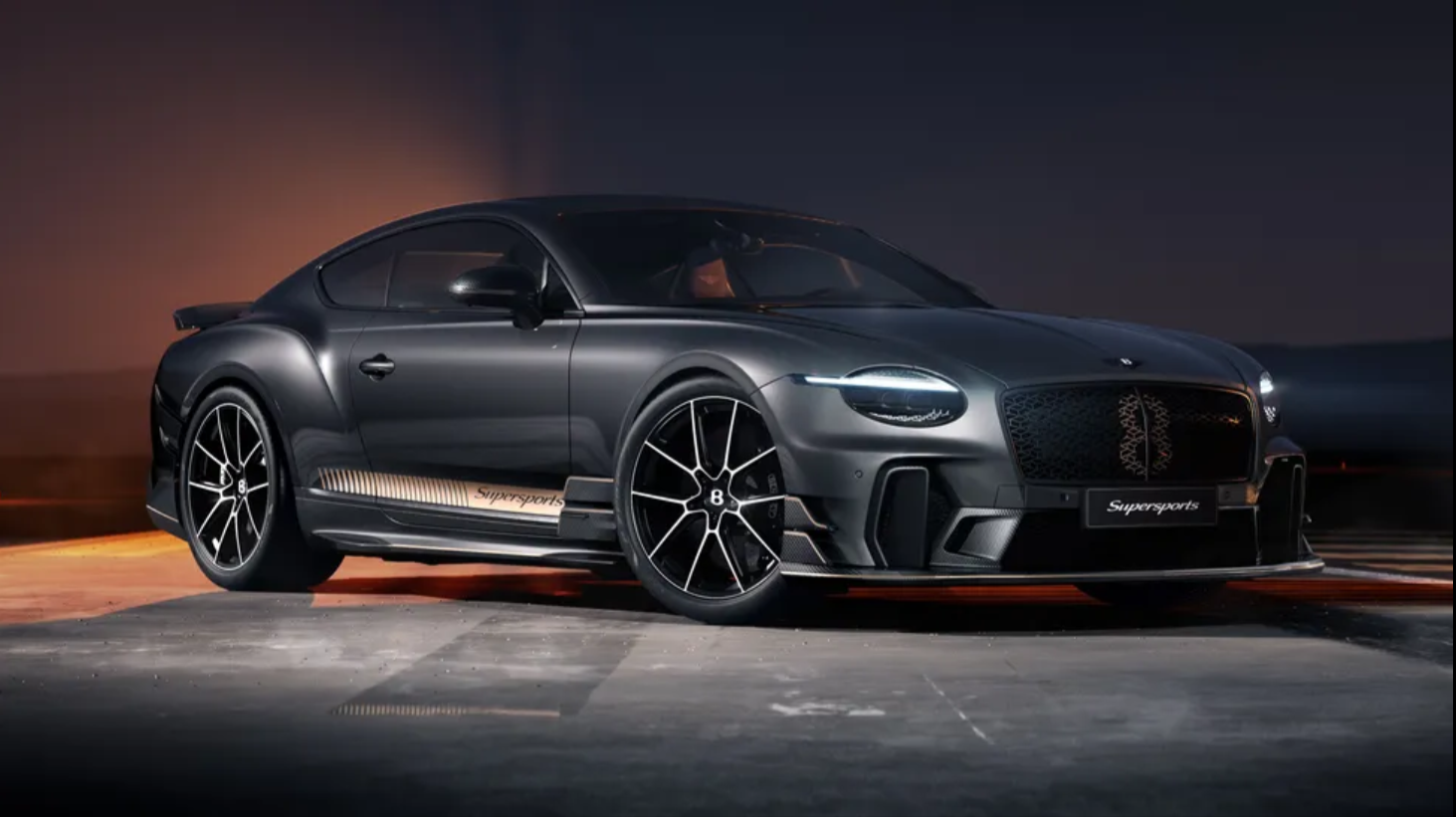The BMW M4 CSL is finally here. The lightweight, high-powered coupe is the company's latest M offering that arrives just as BMW celebrates 50 years of its iconic performance brand.
The new M4 CSL is an exclusive model, with BMW planning to produce just 1,000 examples for the entire world. The coupe receives improvements over the M4 Competition, making it the fastest series-production BMW ever to lap the Nürburgring's Nordschleife circuit. It took the M4 CSL just 7:20.2 to complete a lap.
Stylistically, the BMW's visual enhancements are all about performance, and at the front, that means BMW optimized the design for maximum cooling potential and generating downforce. The new M4 features high- and low-temperature cooling circuits to ensure the car's various components maintain their optimal operating temperatures during street and track driving.
The BMW M4 CSL uses the brand's twin-turbocharged 3.0-liter inline-six engine. It produces 543 horsepower (404 kilowatts), a 40-hp increase over the M4 Competition. The engine pumps out 479 pound-feet (649 Newton-meters) of torque available from 2,750 to 5,950 rpm. BMW also cranked up boost pressure from 24.7 psi in the Competition to 30.5 psi in the new CSL.
BMW routes the CSL's power to the rear wheels through its eight-speed M Steptronic transmission with Drivelogic. Tapping the carbon-fiber paddle shifters behind the steering wheel engages the gearbox's manual mode, allowing drivers to execute multiple downshifts to the lowest available gear. The gearbox also won't force upshifts when in manual mode and the car's accelerating.
BMW says the M4 CSL will hit 60 miles per hour (96 kilometers per hour) in 3.6 seconds. It needs just 10.5 seconds to hit 120 mph (193 kph). BMW electronically limits its top speed to 191 mph (307 kph).
BMW went to great lengths to reduce the CLS's weight, eliminating 240 pounds (108.8 kilograms) and giving the coupe a 3,640-lbs (1,605-kg) curb weight. BMW's weight loss program included cutting the rear seats (46 lbs), switching to lightweight sound insulation (33 lbs), using interior and exterior carbon-fiber-reinforced plastics (CFRP) components (24 lbs), and installing a titanium rear silencer (9 lbs).
The CSL's standard M Carbon ceramic brakes eliminated another 31.5 pounds, while BMW's extensive use of CFRP for the hood and trunk reduced the coupe's weight by another 3 lbs and 15 lbs, respectively.
BMW shaved another 8 pounds from various components such as the kidney grille, rear lights, floor mats, and automatic climate control system. Using carbon fiber for the center console cut about 9 lbs, though one of the most significant cuts came from BMW installing M Carbon full bucket seats, which dropped another 53 lbs from the car.
Inside the M4 CLS, you'll find just two lightweight seats, but they are no ordinary BMW seats. BMW exclusively designed the M Carbon full bucket seats with track driving in mind. They lack lumbar support, power adjustability, and heating. However, BMW will offer heated M Carbon bucket seats with complete power-adjustability as a no-cost option if the standard seats are a bit too extreme.
The M Carbon full bucket seats, trimmed in black Merino leather with red Alcantara inserts, feature pronounced side bolsters, and they come with a fixed-angle backrest. If you want to adjust the height, you'll need a workshop and the use of a three-stage screw linkage. Thankfully, drivers can make fore and aft adjustments with a manual lever at the front edge of the seat. The lack of rear seats makes space for two helmet storage compartments.
BMW also used CFRP for the double-bubble roof, which helped reduce the car's overall curb weight and lowered the car's center of gravity. That's a big win for its handling. The company also stiffened the car's engine and transmission mounts while installing a specially developed strut brace that connects the two spring strut towers with the front end.
Underneath, BMW installed a model-specific suspension that lowers the ride height by 0.3 inches compared to the M4 Competition. BMW designed many suspension parts specifically for the CSL, such as the anti-roll bars, wheel camber settings, and dampers.
Stopping power comes from six-piston, fixed-caliper 15.7-inch front brakes, and single-piston, floating-caliper 15.0-inch rears. BMW offers two pedal-feel settings for drivers. Those brakes sit inside staggered 21- and 22-inch matte-black light-alloy M wheels that BMW wraps in Michelin Pilot Sport Cup 2 R tires.
Source


.jpg)
.jpg)
.jpg)
.jpg)
.jpg)
.jpg)
.jpg)
.jpg)
.jpg)
.jpg)
.jpg)
.jpg)
.jpg)
.jpg)
.jpg)
.jpg)
.jpg)
.jpg)
.jpg)
.jpg)
.jpg)




.jpg)


.jpeg)

.jpeg)
.jpeg)

